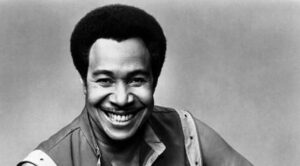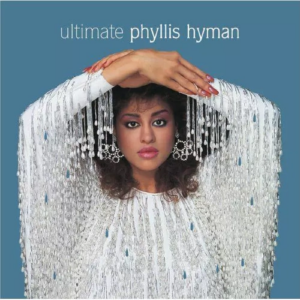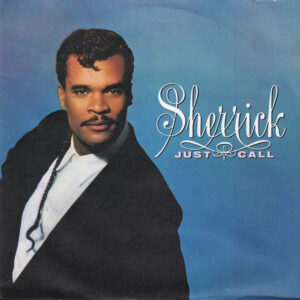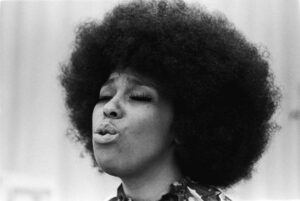Feminism has come a long way since these ladies were fortifying women with songs of power and reclaimed sexual agency. The impact and daring of Labelle singing messages about strong women running their own lives and relationships may be lost on a generation spoon-fed on Lil Kim’s hyper-sexuality and Queen Latifah’s fearless might. However, when Labelle shed the sequined gowns, blonde wigs and sweet ballads of their Patti Labelle and the Bluebelles days for jeans, afros and liberation songs, they paved the way for legions of girl groups to follow their unconventional path. It is not hyperbole to state that there could have never been a TLC or a Spice Girls without Patti Labelle, Sarah Dash and Nona Hendryx. When Labelle dared to venture into the all boy P-Funk territory of funky costumes and pyrotechnic shows with their concert levitations and outrageous LeGaspi and Erker space suits, they smashed all assumptions about what a girl group could do and what they must represent. Moreover, they had fun doing it. The women and gay men who frequented their role models’ shows found affirmation in Labelle’s open arms and the powerfully messaged support those 70s pioneers needed to shatter all those glass-ceilings. That Labelle’s legacy has recently been reduced to a single hit about commercial sex work shortchanges these Nightbirds in ways profoundly revisionist and nearly criminal. So, it was with gratitude and excitement that I received a reunion album representing the real Labelle, not the Lady Marmalade fantasy concocted since the group’s 1976 farewell.
The culmination of a reunion thirty years in the making, Back to Now is a roaring return from sexy sexagenarians who look more like mothers than grandmothers. The artistic success of this mostly timeless ten-song suite proves that Labelle is not done blazing new paths. When so many veterans are tepidly releasing cover albums, singing smooth jazz or fearfully "running back" to gospel, Labelle proves that veteran acts can still develop and release albums of relevant, original material that not only sings, but rocks! Boldly sung and exquisitely harmonized with voices that can still carry notes straight to the moon, Labelle hasn’t lost any of the presence and power that made them legends. This isn’t a lovely Patti Labelle album; this is a Labelle album vibrant with political messages, piercing concern and a ripe, mature sexuality.
Producers Lenny Kravitz, Nona Hendryx and a surprising return by Kenneth Gamble and Leon Huff of Philadelphia International Records fame have shepherded a Labelle album that could have easily been released in 1975. Songs like "System," "Dear Rosa," "Hold On" and "Tears for the World" are rife with energy, compassion and an undertone of disappointed rage, all elements that personified the best of Labelle’s socio-political commentary. The country flavored "Superlover" reflects off "If I Can’t Have You" from Moon Shadow and "(Can I Speak To You Before You Go To) Hollywood" from the group’s under-rated Pressure Cooking. Meeting Patti, Sarah and Nona’s power ballad quota, "Without You In My Life" echoes "Let Me See You In The Light" and "Last Dance," also from Pressure Cooking. "The Truth Will Set You Free" returns them to the funk and church of "Get You Somebody New" from Chameleon. Only Wyclef Jean’s ear-bleeding, auto-tuned girl power, "Roll Out," attempts to diminish Back to Now with obvious commercialism.
If cuts from Back To Now sounds like the 70s, it’s partially because a couple of the songs were written or recorded then, including the sultry ballad "Candlelight" and a live, baroque performance of Cole Porter’s "Miss Otis Regrets." The unreleased standard is yet another example in a long line of classic material that Labelle’s transformative interpretations have turned inside out, a tradition that includes Jagger’s "Wild Horses" and Simone’s "Four Women."
Back To Now is the Labelle album people have been waiting for. Don’t let the misguided single, "Roll Out," fool you. Seasoned yet fiery, Labelle is back to once again to show the naked, manufactured young ladies of contemporary music what empowered female rebellion, wholly-owned sexuality, and inspiring provocation looks like when it uplifts people more than it shocks. Labelle’s phoenix is a resurrected beacon of light musically guiding the dispossessed as these ladies always have: by example. Highly Recommended.
By L. Michael Gipson









